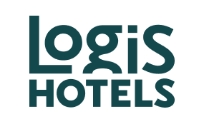Hotel Brokers International : Economy/Credit Market Meltdown Take Toll on Hotel Real Estate Sales in 2008
|
Catégorie : Monde - Économie du secteur
- Chiffres et études
Ceci est un communiqué de presse sélectionné par notre comité éditorial et publié gratuitement le jeudi 07 mai 2009
Pent-up Demand Expected to Accelerate Sales in 2009 Second Half
Officials of Hotel Brokers International (HBI), the nation’s largest brokerage organization with more than 30 offices coast to coast, today released its TransActions Recap 2009, a comprehensive report on hotel real estate activity for 2008 and the organization’s forecast for 2009. As a result of a deepening recession and hobbled credit markets, hotel transaction dollar volume in 2008 plunged 55 percent to $9.9 billion from $21.9 billion in 2007. HBI believes the downtrend will continue in 2009, although volume in the second half should improve, due to pent-up demand and as commercial lending begins to respond to government stimulus efforts. The 115-page publication, detailing more than 3,000 hotel transactions over the last five years, is available from HBI for $200.
“We believe these have been the most challenging conditions in our 50-year history, with the late 80’s/early ‘90’s a close second,” said Jeff Westgor, CHB, president, Westgor & Associates, Minneapolis, and president of HBI. “Overall, the number of hotel transactions in 2008 was at its lowest level in five years. The one-two punch of a severe economic recession and a dysfunctional credit market, suffering from the disappearance of CMBS debt, has had a major impact on our industry, which previously had experienced five years of significant increases fueled by easy access to capital and the growth of RevPAR and earnings.”
Credit Crunch Biggest Impact on Transactions
Westgor added that the credit crunch had the biggest impact in 2008 on larger dollar transactions, those over $10 million. According to HBI recorded data, sales of upscale and luxury hotels were off 57 percent, while sales of economy and mid-market properties, which account for the lion’s share of HBI transactions, remained relatively stable, down 11.2 percent.
Westgor noted that financing became significantly more difficult to obtain by mid-summer last year. According to a recent HBI lending survey, by year-end 2008, some 75 percent of lenders said that they had reduced the number of hospitality loans underwritten. With the capital markets seizing up, sales in the second half of 2008 declined by 24 percent, with upscale and luxury hotel sales falling 44 percent compared to economy and mid-market sales, which were off 11 percent in the second half.
For the full year, HBI recorded 481 hotel sales industry-wide, down 35 percent compared to 736 transactions in 2007. The average hotel sold had 146 rooms and sold for a price per room of $99,000, a 15 percent decline from 2007, driven primarily by a lower average price per room for upscale and luxury hotels. The economy and mid-market hotels’ price per room held up, posting a slight increase from $42,000 in 2007 to $44,000 in 2008.
Sales of mid-market properties accounted for nearly 50 percent of all hotel transactions in 2008. The most popular hotel segment among buyers was select-service without food and beverage, with 140 transactions, led by a high demand for brands such as Hampton Inn, Comfort Inn and Holiday Inn Express. Upscale with restaurants was the second most preferred segment at 112 transactions, with Courtyard by Marriott, Residence Inn and Hilton Garden Inn heading the list.
Industry-wide cap rates increased from 9.21 percent to 9.49 percent by year-end 2008, as softening lodging demand began to affect operating performance and the lack of available financing began to impact investors. HBI brokers believe that cap rates will continue to rise in 2009, as performance fundamentals and asset values decline and lenders return to more stringent underwriting criteria.
Other 2009 Highlights
• Financing continued to be available for select-service hotel transactions through regional banks and lenders using Small Business Administration and USDA loans to limit their exposure with governmental guarantees.
• After five years of steady increase, hotel financial performance declined in 2008 as the U.S. and global recessions impacted both corporate and leisure travel.
• Sales of hotels under $10 million remained relatively strong in 2008, falling by only 8 percent.
• Sales of upscale hotels, the most sought-after investments in 2007, declined nearly 70 percent, reflecting the scarcity of debt and end of the hotel real estate growth cycle.
• Suburban hotels were the best sellers in 2008, accounting for 46 percent of all hotel sales.
• Sales of hotels in resort locations declined by nearly 50 percent, again in direct correlation to the perception that performance will not see growth until there is an economic recovery.
• Hotels in secondary markets (population of 50,000 to 150,000) held their value, with an average price per room of $95,000 vs. $96,000 in 2007. This trend reflected the more consistent performance in these markets and properties that were predominantly select service midmarket or newer product.
Outlook
As for 2009, HBI brokers agree that the hotel real estate market will continue to be challenged until signs of stabilization appear in both the economy and the capital markets. “We will probably hit the bottom of this downtrend in 2010, but as in the past, hotel real estate will follow the economy, there is no doubt,” Westgor said. “We are encouraged by recent forecasts that RevPAR is expected to improve in 2010.
“Financing will continue to be difficult to obtain, but the corollary is that there will be opportunities for savvy investors to buy assets at significant discounts. On the sell side, we see the maturity of billions of dollars in CMBS debt creating significant increases in assets for sale over the next three years.”
Westgor noted that the need for an experienced hotel broker is perhaps greater than at any time in this century. “A lot of brokers outside the industry jumped on the bandwagon earlier in the cycle,” he said. “In today’s environment, a broker needs to understand the impact of the economy on hotel performance, the financial complexities of structured debt or alternative forms used to finance challenged assets, as well as the changing world of how franchise and franchisees interact. HBI clients benefit because we have navigated successfully through numerous economic cycles and understand the specific knowledge and skillsets needed to weather the storm.”
|
|







